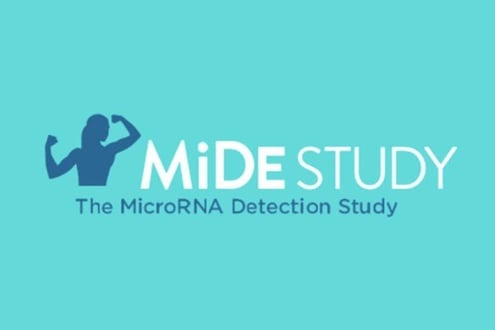BRIP1 Gene Mutation

Information about Inherited Mutations
What is ?
is a gene that helps repair damage to your . People who are born with changes—called mutations—in their gene have an increased risk for certain types of cancer.
Which cancers are associated with a mutation?
Mutations in the gene have been linked to an increased risk for and ovarian cancer. Researchers are studying whether these mutations increase the risk for other cancers.
Does everyone with a mutation develop cancer?
Although the lifetime risk for cancer with a mutation is higher than average, not everyone with the mutation develops cancer. Following the risk-management guidelines can help people with mutations avoid a cancer diagnosis.
What can people with a mutation do?
Expert guidelines include recommendations for people with mutations on managing their cancer risk.
People with a mutation who have been diagnosed with some types of cancer may qualify for specific treatments or clinical trials using targeted therapies.
There may be other medical concerns, including a rare childhood disease known as Fanconi anemia which can happen in people who inherit a mutation in both copies of their gene.
If you test positive for a mutation, you should inform your close blood relatives (first-, second-, and third-degree relatives) about your test results and encourage them to speak with a genetics expert.
More detailed information for people with inherited mutations is highlighted below.
Get notified when updated information becomes available.
SIGN UP FOR CONTENT UPDATESMore Information for People with Mutations
Cancer Risks
Cancer risk estimates are updated based on the latest research. Read about the lifetime risk for cancer in people with inherited BRIP1 mutations.
Risk Management Options
Read about the latest expert guidelines for cancer screening and prevention for people with a BRIP1 mutation. Learn about research studies enrolling high-risk patients.
Cancer Treatment Options
Tumor biomarker testing and genetic testing can provide additional clues about which treatments may work best for your cancer. People who test positive for a BRIP1 mutation may have additional treatment or clinical trial options available to them.
Other Considerations
People who inherit a mutation in both copies of their BRIP1 gene—one from each parent—have a rare disease known as Fanconi anemia. Learn additional information about inherited BRIP1 mutations.
More Resources
Participate in Prevention Research
The screening and prevention studies below are enrolling people with mutations. To search for more studies, visit our Search and Enroll Tool.
Screening Study for Men at High Genetic Risk for Prostate Cancer
Clinicaltrials.gov identifier: NCT03805919
Prostate Cancer Genetic Risk Evaluation and Screening Study (PROGRESS)
Clinicaltrials.gov identifier: NCT05129605
Clinicaltrials.gov identifier: NCT05287451
Participate in Treatment Research
The treatment studies below are enrolling people with mutations. To search for more studies, visit our Search and Enroll Tool.








